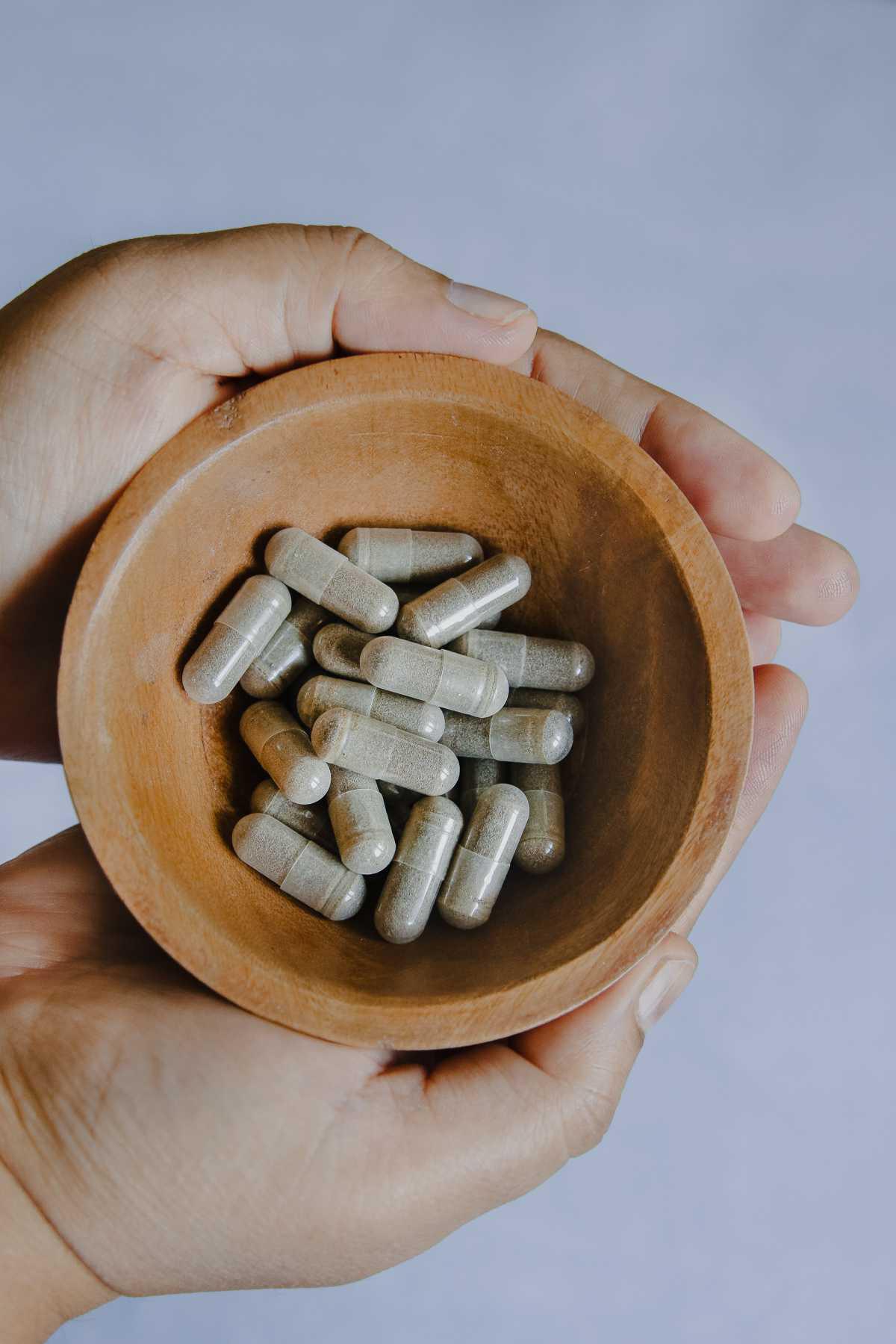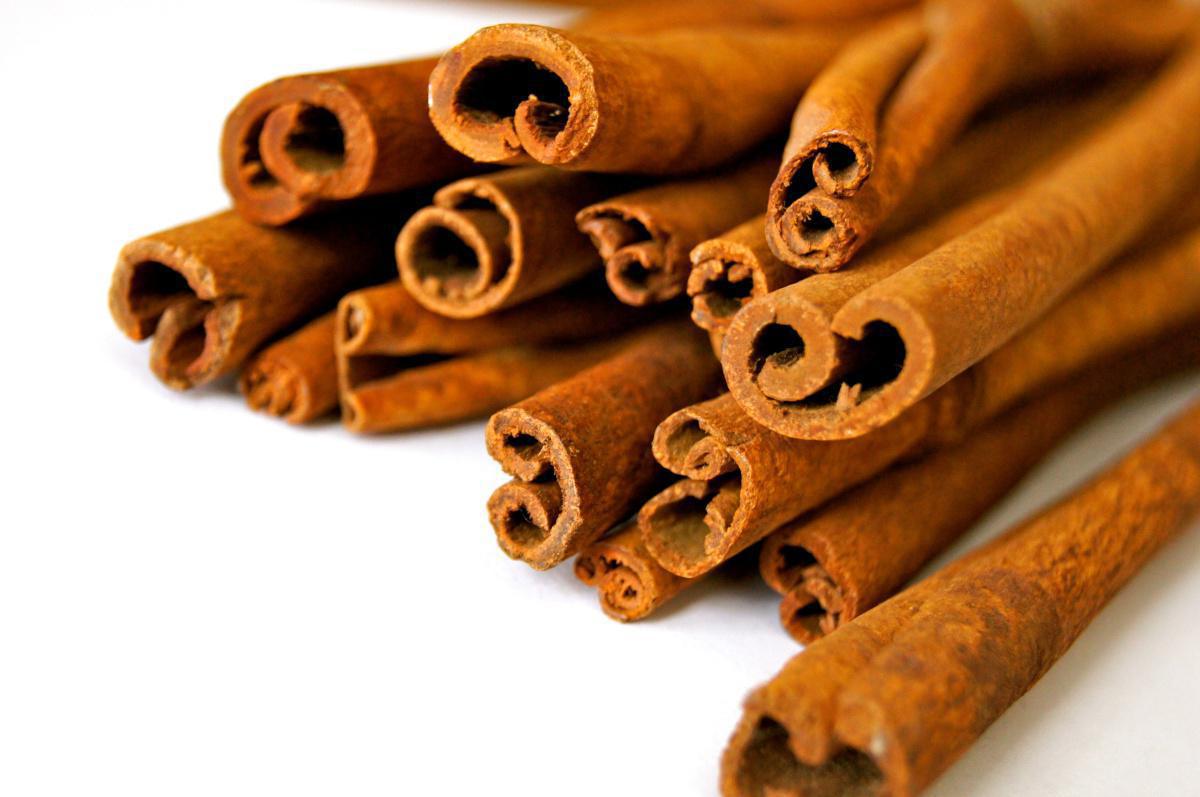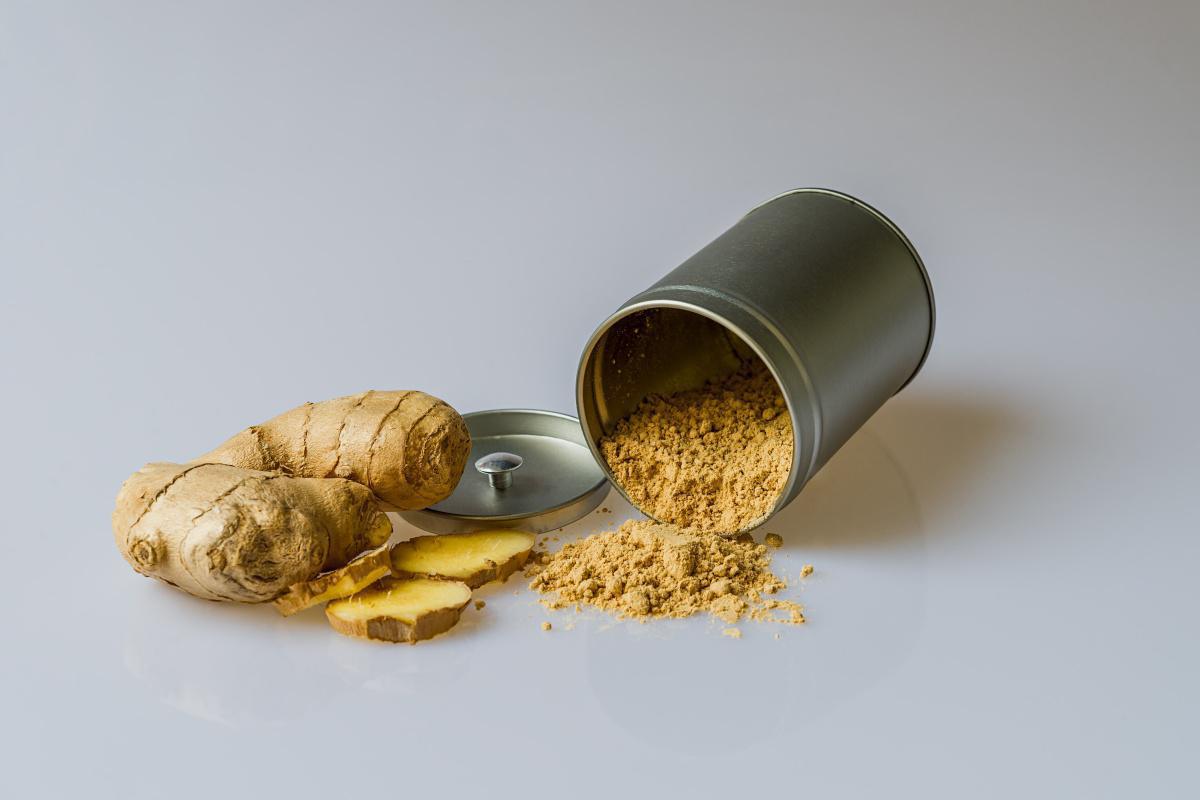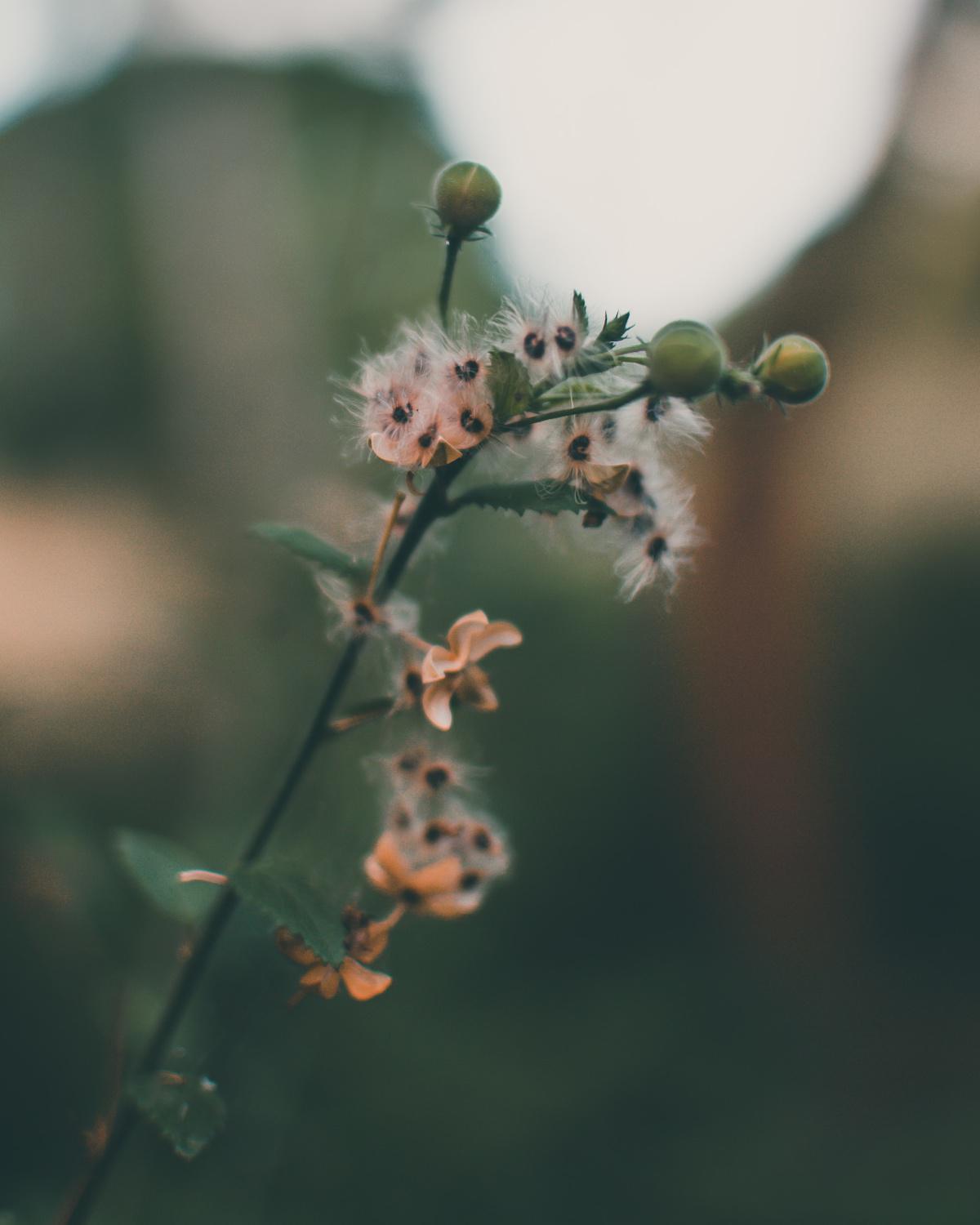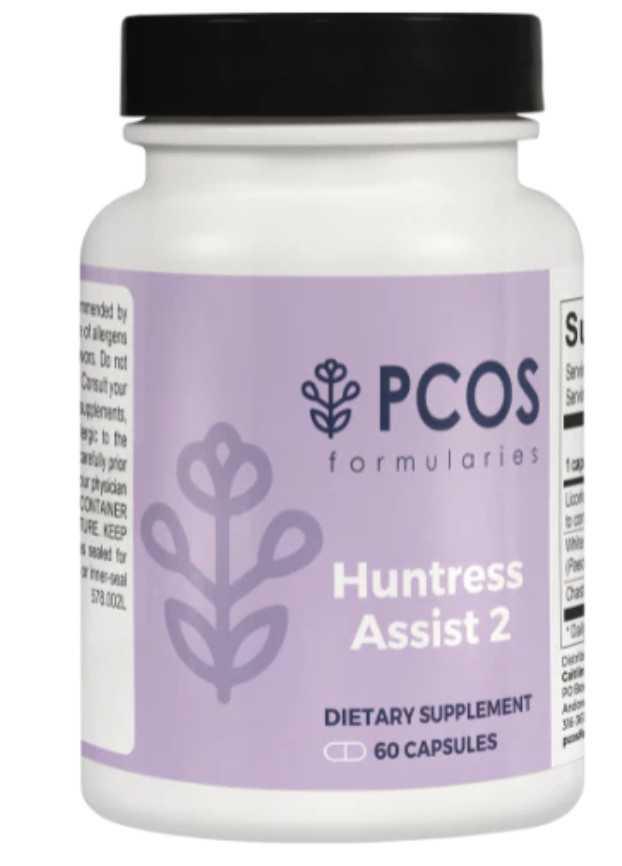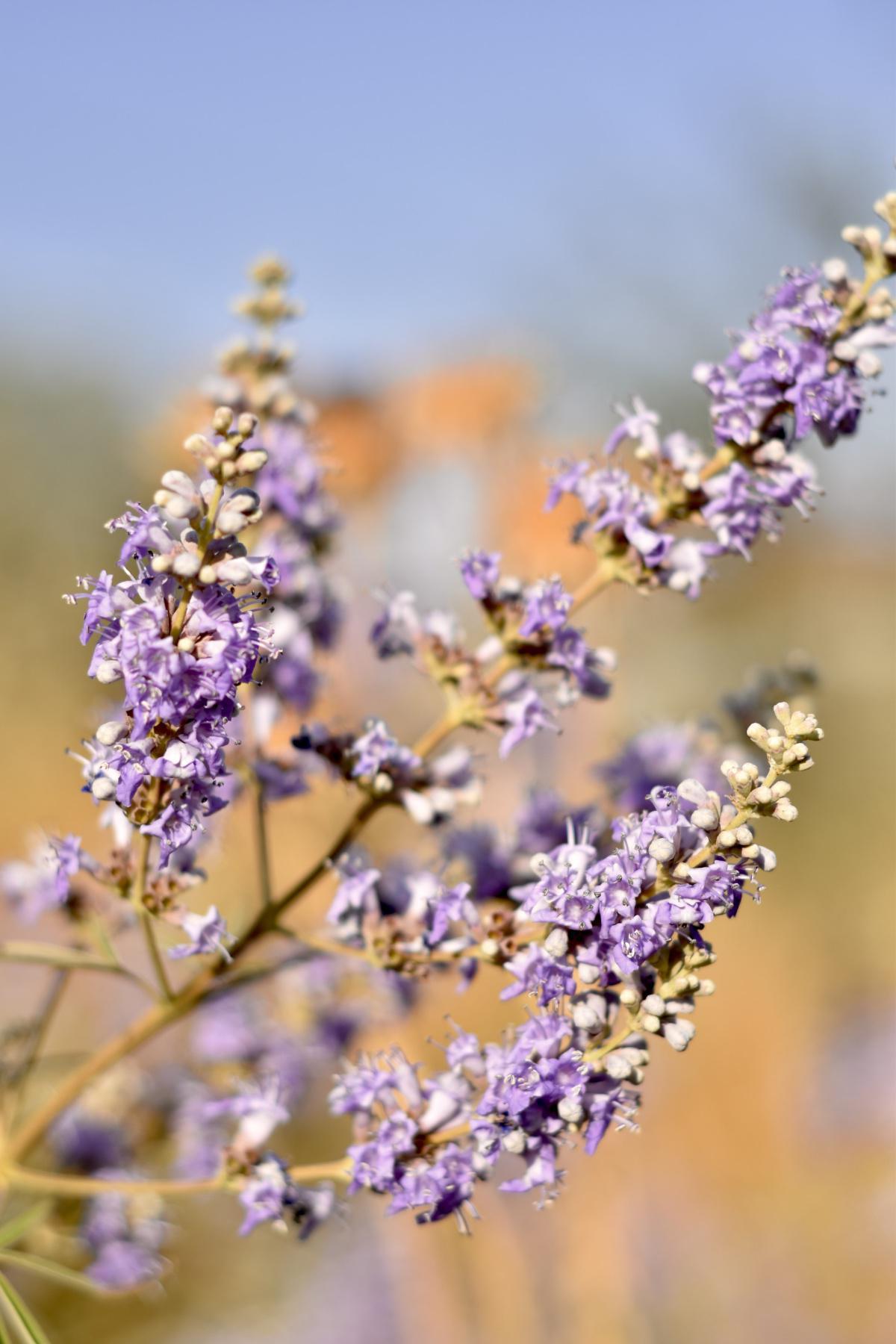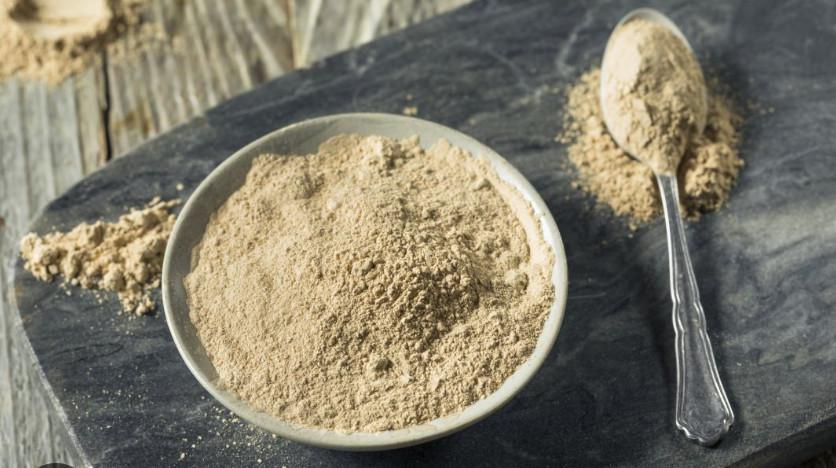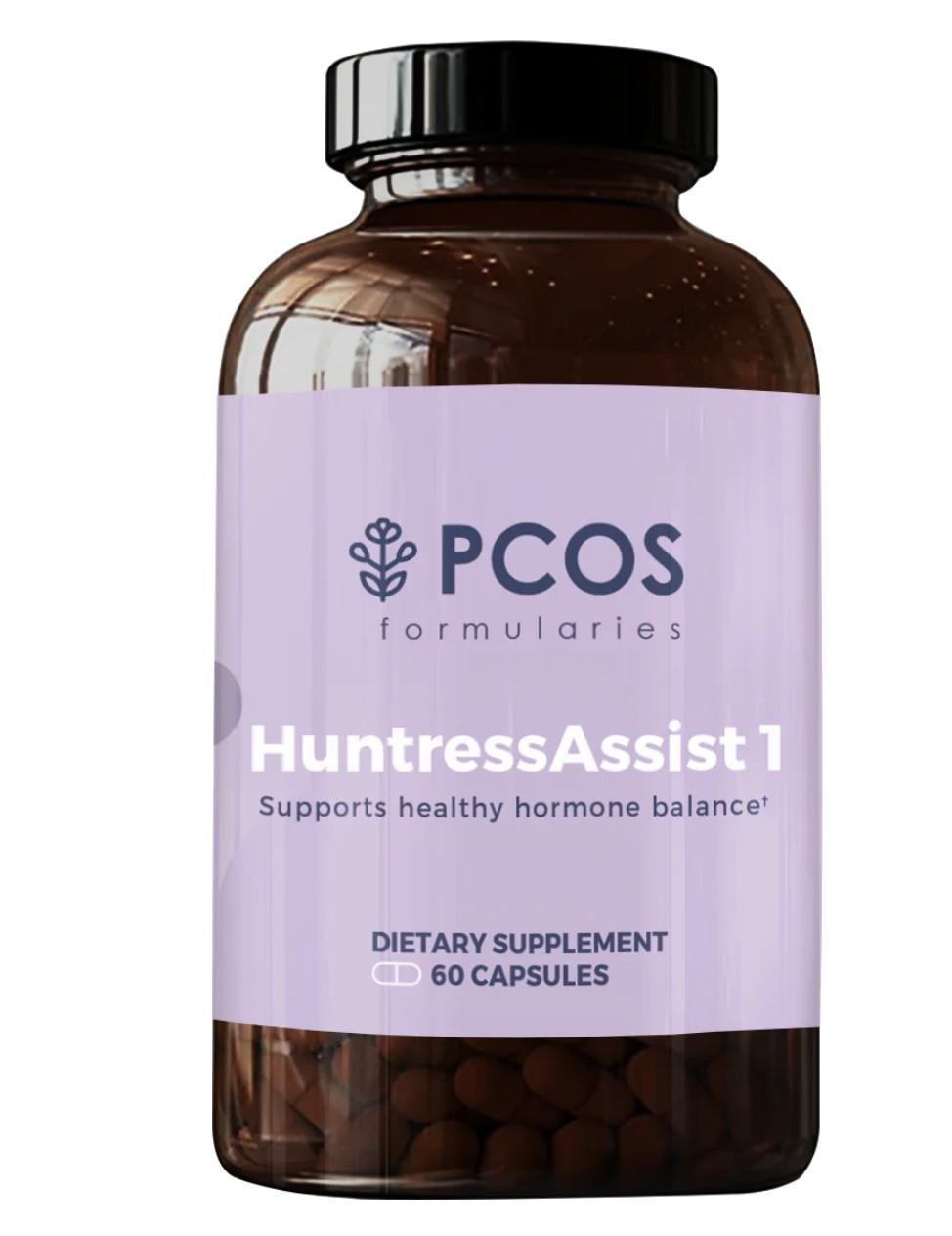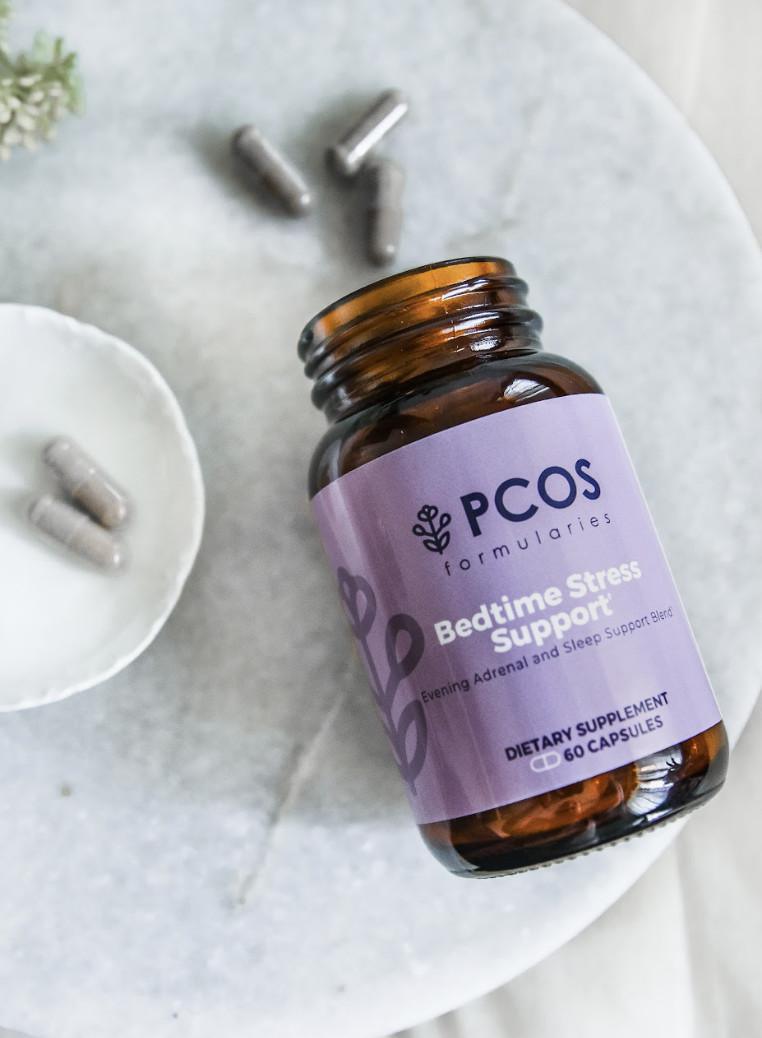Everyone wants a quick cure for health problems. PCOS symptoms are no exception here. We look for diets, medications, and forms of exercise to be large portions of our symptom improvement with PCOS.
We live in a culture that seeks instant gratification, two day prime delivery isn’t fast enough, now you can even get 2 hour delivery from whole foods. I’d like to take a shift from this mentality and introduce an entire avenue of helping your body and metabolism with PCOS from age-old wisdom.
You will have to slow down to see the benefits, but you will likely tap into an inner wise woman from your ancestors as we approach this topic.
This planet has much to offer in terms of natural resources for our bodies. Plants have long been used in different forms for their health properties. Today we are going to dive into the specific herbs, spices, other plants, botanicals, and teas that can help you with your PCOS.
Are you someone who loves to add flavor to your food? Do you use herbs and spices when cooking? Did you know that these flavor enhancers can also be beneficial for those of us with PCOS?
Let’s start with things you can play with in the kitchen for flavor - herbs, and spices!
If you aren’t used to adding herbs or brewing a delicious cup of tea, we hope you’ll take this opportunity to start after reading about all the benefits for your PCOS! These are simple things to incorporate into your foods in order to maximize your health potential.
And what’s also amazing - they tend to be very inexpensive options compared to many supplements and medications. Here are some herbs and spices that not only taste great but also improve our PCOS symptoms.
Cinnamon
Do you love to add cinnamon to your baked goods or beverages? The aroma of cinnamon is magnetic to many of us! Everyone in the house comes to the kitchen when cinnamon is in the air! You’re probably already using cinnamon but did you know it also has health benefits? (1, 2)
Cinnamon for insulin resistance and metabolic health
Cinnamon can significantly decrease fasting blood sugar and insulin in PCOS patients. This is awesome because high blood sugar and insulin resistance are at the core of many PCOS symptoms. If you can improve your fasting blood sugar and insulin, you can alleviate so many PCOS symptoms! Yay!
Cinnamon is such a little change that can make a huge difference. It can also significantly benefit our cholesterol, LDL, and triglyceride levels and has fewer side effects than Metformin. (3)
Can cinnamon also impact fertility for PCOS patients?
In terms of fertility, we also see that cinnamon can help decrease AMH levels which are commonly high in PCOS- this can be a sign that the ovary's total number of follicles (the ‘cysts’ in polycystic ovaries) are decreasing and may lead to improved ovulation and egg quality.
What dose of cinnamon can be helpful and is evidence-based?
Most of the studies we have to date on PCOS specifically test a dose of about 1.5 gm or 1500 mg daily. However, when you start looking at studies in people with type 2 diabetes the dose goes up even higher with increased improvement in insulin resistance. (4) As such, I’ve always recommended using between 1.5 gm and up to 3 gm daily.
You can gain these benefits from cinnamon by adding between 1.5-3.0 gm (⅓ -⅔ tsp cinnamon powder) each day to your food. That’s really a TINY amount! You can add cinnamon to your smoothies, yogurt, toast, cottage cheese, yogurt, coffee, or tea!
Cinnamon adds a rich and slightly sweet flavor to foods. I also like to sneak it into my marinara sauce to cut the acid from all the tomatoes. Shhhhh.
Why is cinnamon so great for PCOS?
For those of you who are interested in the mechanisms behind cinnamon’s power, here’s what the research tells us. Cinnamon works by allowing glucose (AKA- blood sugar, carbohydrates, or energy) to be balanced in healthy amounts. That’s called “glucose homeostasis”.
When glucose homeostasis is reached, we feel healthier and our bodies are happier. Cinnamon helps to manage our metabolism by slowing down how our stomach empties food into our small intestine. This slows down the rate glucose enters our cells.
Cinnamon also improves the types of lipids (AKA- fat, cholesterol) in people with PCOS. This reduces oxidative stress…hello, antioxidant benefits! Some studies also show that cinnamon reduces the creation of fat cells and aids people with obesity-related complications. (5, 6)
What PCOS symptoms can cinnamon potentially improve?
Do you have hirsutism as a PCOS symptom? That unwanted facial and body hair? Cinnamon also reduces facial and body hair and other excess-androgen-related conditions by lowering those male hormones that are so common with PCOS. (2) This also improves ovarian function and regulates menstrual cycles which could increase the fertility rate. (7) Overall, cinnamon helps balance our hormones! Isn’t that something everyone could use?!
Turmeric and Curcumin for PCOS Treatment
Are you a fan of Indian foods and flavors? Did you know that turmeric has been used for thousands of years as a culinary spice in China, India, and Africa? That’s a LONG TIME!
Turmeric is one of those powerful spices that has additional benefits other than tasting great. Turmeric has been studied for many years so we understand a lot of its medicinal abilities. We now know that curcumin is the active compound inside of turmeric and is the real star of the show.
How can Curcumin impact PCOS Symptoms and Fertility?
Curcumin can help with PCOS symptoms by lowering inflammation! (8) People with PCOS have chronic low-grade inflammation which can be problematic because it causes inflammation in our arteries and veins along with organs like our uterus and ovaries. (9)
An inflamed uterus can be responsible for pregnancy complications like miscarriage and placental insufficiency. With PCOS we have higher risks of developing heart disease and inflammation is part of what drives plaque into our arterial walls. So, managing our inflammation is really important for so many reasons!
What dose of turmeric can help a PCOS patient realize benefits?
Benefits are shown with as little as 93 mg each day and up to 1500 mg each day. What’s nice about turmeric is that you can add as much as you would like because adverse reactions do not seem to increase with higher amounts of curcumin. (10) So, feel free to get crazy with it!
Culinary applications of Turmeric for PCOS
You can add it to your chicken, rice, milk, teas, potatoes, eggs, pancakes, lamb chops, vegetables…pretty much everything! It gives your food a beautiful golden color that makes you feel warm and happy all over.
To get some of the common benefits from culinary uses of turmeric make sure you also have black pepper in the meal. Black pepper essentially turns on the turmeric.
In addition to lowering inflammation, adding turmeric to your foods can help to improve hormone levels by reducing oxidative stress and regulating insulin and sex hormones. This helps with fasting blood glucose and insulin sensitivity, just like cinnamon does! It helps with weight loss too! These are all common symptoms of PCOS.
Fenugreek for PCOS
Did someone say Indian cuisine and teas? Fenugreek along with cinnamon and turmeric are all ventral to this part of the world. We could gain a lot of insight from these warm and delicious spices. It’s even a golden color just like turmeric! Are you familiar with Fenugreek?
What are the benefits of Fenugreek for PCOS Patients?
One of the benefits of taking fenugreek is a reduction in size of cysts on the ovary, which is a really common symptom of PCOS. Definitely worth taking a couple of capsules each day of fenugreek.
The studies that research fenugreek show beneficial effects with 2 capsules taken each day of 500 mg for 90 days. This dosage is pretty low and most capsule forms are much higher than that so it’s really easy to reach that amount in a day. (11)
Other beneficial side effects from taking fenugreek as a supplement or cooking with it is that it helps to increase the hormones we need like luteinizing hormone and follicle-stimulating hormone. These hormones help regulate our menstrual cycle and follicle development- something we need extra support with in PCOS.
Fenugreek helps by reducing blood glucose levels, which can be helpful for many of us with PCOS, since we struggle with higher levels of insulin. By decreasing insulin resistance in women with PCOS so many symptoms can be relieved! The soluble fibers in fenugreek help lower blood sugar by slowing down absorption. If we can slow absorption, we reduce the amount of insulin produced.
There are some tasty recipes that use fenugreek like Fenugreek Chicken Curry or Indian Cauliflower with Ginger and Fenugreek. Let us know in the comments if you try any of these recipes or tell us what recipes you like to include fenugreek in.
Fenugreek as a Galactogogue
Fenugreek is often used in the context of galactogogues and increasing breast milk supply. (12) When taking high doses of it your urine and your breastmilk can smell like maple syrup. This is not a concerning side effect, but it is often not the first herb I turn to when trying to increase milk supply in PCOS. Use this herb with caution or with the help of a Lactation Consultant if trying to increase your milk supply.
WARNING: Fenugreek can be very powerful as your body gets used to it, so just as you would use precaution dosing up on medications like metformin, you would also want to increase your dose slowly and be prepared with snacks in your purse in case you have a low blood sugar effect.
Ginger and PCOS treatment
Ginger is such a potent root! The benefits of using ginger cannot be ignored! You may be surprised that you are eating more ginger than you think. Ginger shows up in things like chai tea bags/mixes, Asian salad dressings, or stir-fries.
You can keep ginger root frozen for months and then mince it when a recipe calls for it, or you can go the lazy route like me and purchase the already frozen cubes of ginger. Lazy or not, I use it way more often when it’s easy and around.
Ginger is a potent antioxidant, that means it clears up the free-floating chemicals in our bodies. Antioxidants are like magnets that go through our bodies and stick to metals and then bind them so that they can’t do any harm to the rest of our body.
In what ways does Ginger help PCOS?
Ginger helps to regulate our menstrual cycles which is huge for PCOS women. In animal model studies ginger has shown to help fight off ovarian cancer cells! (13) Like, what?! Other animal model studies show that ginger can increase fertility in males by increasing sperm motility, count, and quality. If you’re trying to get pregnant, this can definitely help increase the opportunities for pregnancy. Not just for you, but both partners!
Culinary Applications for Ginger
What’s nice about ginger and a lot of these natural herbs, spices, and botanicals is that you can’t really over-do it. There are no health risks to cooking with too much ginger.
In clinical trials, benefits are found with anywhere from 170 mg to 1 gram, 3 to 4 times each day. (14) That's the equivalent of 1/2 a teaspoon of powdered ginger or 1 teaspoon of grated raw ginger. So, the next time you’re at a sushi restaurant, chow down on the ginger they bring with your meal!
I love to use it when I’m making a frozen Trader Joe’s chinese meal and I’m going to make a side of veggies to go with it. I’ll cut up onions, carrots, bell peppers, and drizzle some sesame oil on top. Then I like to add salt, pepper and GINGER and then roast for 15 minutes at like 450 degrees F.
There are a lot of recipes that include ginger as an ingredient. Ginger Root Tea, Ginger Chicken, Carrot Ginger Soup. It’s also nice to have ginger frozen or in paste form ready to be used in the refrigerator, that way you can toss it in anything.
We are going to switch focus from herbs that have culinary purposes to those that are used more regularly in teas. Just remember many of those with culinary purposes like cinnamon, ginger, turmeric, and even fenugreek can be in both categories and taste great in tea too.
Moving on from Herbs, let’s focus on Teas that benefit PCOS
Tea is not consumed so is not regulated the same way that produce is in terms of pesticides and other chemicals. As this is a leaf that boiling water is then poured over, I highly recommend purchasing only organic tea that will have fewer chemicals to be exposed to.
How to brew tea for PCOS without harming your hormonal health
The other thing most people don’t know about tea is that it is often in a bag that looks like paper but has tiny microplastics in it. So - having a way to brew loose-leaf tea is best.
I have some suggestions on my Amazon storefront that include, metal tea balls, ceramic cups with infusers or glass pitchers with mesh strainer to make large amounts of tea. Drinking tea can be so helpful for PCOS, so investing a small amount into a way to brew it that is safe is imperative.
Spearmint (tea)
Do you love spearmint flavors as much as I do? I love chewing spearmint gum after a meal to keep my teeth clean and breath fresh. Sipping on a cup of spearmint tea gives you fresh breath AND health benefits!
Why is spearmint tea a great option for PCOS management
Spearmint tea has been studied in women with PCOS and has been shown to lower androgens in females with hirsutism. (15) Is hirsutism a pain in your tush like it is mine?! More like a pain in my chin and neck! Drinking spearmint tea can help to hinder the growth of body and facial hair. It has also shown that it allows the menstrual cycle to advance to ovulation. This means a healthy success-full cycle!
There are times to limit spearmint tea consumption though. The most important is in pregnancy and breastfeeding. As it can be a powerful testosterone-lowering herb, that is not safe in pregnancy. Taking high amounts of spearmint can also decrease breast milk supply.
The other time to consider not going overboard with spearmint is if you struggle with anemia of any kind I would take regular breakfast from drinking spearmint tea as it can impair non-heme iron absorption- this is especially important for people that do not eat meat.
To get the right amount of spearmint without going overboard, you can drink spearmint tea twice a day to get the benefits of lowering androgens which in turn reduces unwanted facial and body hair.
If you don’t want to drink it that often, you can still gain benefits by drinking a cup of herbal tea steeped with spearmint tea for 5 days twice a day in the follicular phase of your menstrual cycle. The follicular phase is the first half of your menstrual cycle; it starts when the first day of your period begins and lasts through to ovulation.
The research shows us that after 5 days there is a significant decrease in free testosterone and an increase in luteinizing hormone, follicle-stimulating hormone and estradiol. (16) These are all things we want!
Green Tea and Applications with Polycystic Ovarian Syndrome
Okay, if you haven’t heard about the benefits of green tea yet, I would be very surprised. Also, I would be proud if I got to tell you about it first! Green tea has been used for thousands of years and is produced by processing green tea leaves right after they’re picked. Drinking green tea is so beneficial for everyone but even more so for those of us with PCOS.
Most women with PCOS struggle with weight gain but green tea is our best friend when it comes to weight loss. Green tea increases energy and metabolism and can lead to weight loss in women with PCOS. Not only does it help with weight loss and energy, it also helps to improve insulin resistance and decrease free testosterone. (17)
Women with PCOS produce too much free testosterone so it’s helpful to get rid of it when we can…cue a warm cup of tea, green tea! You can also brew and drink over ice. I like to make a large batch at the beginning of the week and drink it all week long.
A lot of the benefits from green tea can be obtained in a decaf version, so if you are thinking, I can’t drink 2 cups of green tea daily, consider getting a yummy flavored version of decaf green tea and sipping on it in the afternoon. I don’t know about you but when I make time to sit and drink a cup of tea, the world doesn’t seem so overwhelming.
You can drink green tea every day for the best results but just drinking it for 12 weeks can result in weight loss, increased energy, improvement in insulin resistance and free testosterone levels. If you’re the type of person that would rather take a capsule then you can take 500 mg twice a day for these benefits.
You may not like the flavor of this next substance and likely may have never heard of our last. So these are more typically consumed in supplement form.
Licorice and lowering androgens for polycystic ovarian syndrome
Do you love the flavor of black licorice? Unfortunately the licorice I’m talking about is not the same thing though. The licorice candy is flavored with aniseed oil so don’t be confused that the candy licorice can have these benefits.
Actual licorice power comes from the root and has estrogen-like behavior which is helpful when your estrogen is low. (18) Licorice is good at regulating our female hormones so that our bodies function well.
Licorice and peony root are often paired in Chinese medicine for women’s health and reproductive issues. Licorice and peony both work by lowering testosterone and free testosterone levels. They can be very powerful at this and can absolutely help improve ovulation and cycle length.
Licorice extract helps with PCOS symptoms by regulating our hormones; Follicle Stimulating Hormone and Luteinizing Hormone are the two main hormones that licorice helps to regulate. Licorice is really helpful for fertility and overall cycle health. When we don’t ovulate monthly our reproductive opportunity is less frequent so licorice can help increase our chances of getting pregnant by regulating hormones and cycles.
Taking licorice supplements can also reduce excess hair growth with hirsutism. It seems like a lot of these herbs, spices, and botanicals help with facial and body hair. I’m here for it! Whatever I can do to help me to feel more like a woman, I am here for it.
To get these benefits you can take a daily dose of anywhere between 760 mg to 15 g while dealing with symptoms or if you want to take it every day, the acceptable daily intake is 0.2mg/kg/day. (19) So, if you weigh 180 lbs you convert that to 82 kg and multiply that by 0.2mg of licorice which makes 16.4 mg per day of the supplement dosage. Most of the supplements sold contain a lot more than that per each capsule so you can rest assured that you’ll be getting enough when you take a supplement.
We have included licorice in the formula to improve androgen balance in the PCOS Formularies line. Look at the product: Huntress Assist 2.
WARNING: Using licorice in culinary avenues isn’t as big of a concern, but when taking doses in supplement form, you should first check with your healthcare provider. Licorice specifically impacts blood pressure and should never be taken by anyone with high blood pressure or on any medication that is altering blood pressure regulation. (20)
White Peony for Lowering Androgen Levels
White peony, also known as Paeonia lactiflora, is an herb commonly used in traditional Chinese medicine (TCM). It is often recommended for women with polycystic ovary syndrome (PCOS) due to its hormonal balancing effects. While scientific research on white peony for PCOS is limited, it's been used for years in TCM and functional medicine.
1. Hormonal Regulation:
White peony contains compounds that may have anti-androgenic effects, meaning they can help reduce the levels of androgens (male hormones) in the body. Excessive androgen levels are a characteristic feature of PCOS and can contribute to symptoms such as acne, hirsutism (excessive hair growth), and irregular periods. By modulating hormone levels, white peony may help restore hormonal balance.
2. Anti-inflammatory Properties:
PCOS is associated with chronic low-grade inflammation in the body. White peony possesses anti-inflammatory properties that may help reduce inflammation and its associated symptoms. By addressing inflammation, it could potentially improve insulin sensitivity and reduce insulin resistance, which are common issues in PCOS.
3. Menstrual Cycle Regulation:
PCOS often causes irregular or absent menstrual cycles. White peony is believed to have a regulating effect on the menstrual cycle by promoting blood circulation and supporting the health of the reproductive system. It is can help to normalize the frequency and regularity of menstrual periods.
4. Stress Reduction:
Chronic stress can worsen PCOS symptoms by affecting hormone balance and exacerbating insulin resistance. White peony is sometimes used in traditional medicine to help calm the mind, reduce stress, and promote relaxation. By managing stress levels, it may indirectly support the overall management of PCOS.
You can take white peony in supplement form, but and in TCM it is not commonly used as a culinary ingredient. However, the dried peony root (known as Bai Shao in Chinese medicine) is sometimes used in herbal formulations or medicinal soups. These preparations typically involve simmering the dried root with other ingredients, such as herbs, meat, or bones, to extract its medicinal properties.
We have included white peony in the formula to improve androgen balance in the PCOS Formularies line. Look at the product: Huntress Assist 2.
Vitex/Chaste Tree Berry
Vitex, also known as chasteberry or Vitex agnus-castus, is another herbal supplement that is commonly recommended for women with polycystic ovary syndrome (PCOS). It has a long history of use in traditional medicine, particularly in supporting hormonal balance in women. While scientific research on vitex specifically for PCOS is limited, I have seen it used in practice and be very effective for certain areas of the hormonal irregularities common in this condition.
Vitex is thought to work by influencing the hypothalamus and pituitary glands, which are involved in regulating hormone production. Here are some ways in which vitex can be beneficial for PCOS:
1. Regulation of the Menstrual Cycle:
Vitex is believed to exert a balancing effect on the menstrual cycle by supporting the production of luteinizing hormone (LH) and suppressing the secretion of follicle-stimulating hormone (FSH). This may help to promote regular ovulation and regulate the menstrual cycle, which can be disrupted in women with PCOS.
It has often been stated that since women with PCOS tend to have higher levels of LH at baseline this plant should be used with caution in this group. We do not have specific research showing that it raises LH levels in PCOS, but can in a normal population. I have used it in a synergistic blend with other androgen-suppressing herbs and seen it do wonders for cycle regulation.
2. Hormonal Balance:
Vitex is often referred to as an adaptogen, meaning it helps the body adapt to stress and promotes balance within the endocrine system. It may help normalize hormone levels by influencing the ratio of estrogen to progesterone, potentially alleviating symptoms such as breast pain, mood swings, and irregular bleeding.
In the naturopathic world, I have seen Vitex handed out as commonly for women with hormonal complaints in a similar fashion to hormonal contraceptives. Yet, particularly in those with PCOS trying to conceive I have seen this herb be very helpful in increasing progesterone levels and improving the amount of time it takes to achieve pregnancy.
3. Reduction of Prolactin Levels:
Vitex is one of the only herbs that we have to help reduce elevated levels of prolactin, a hormone that can be elevated in women with PCOS. High prolactin levels can interfere with ovulation and contribute to irregular menstrual cycles. This is a great option for anyone struggling with high levels of prolactin.
4. Management of PMS Symptoms:
Vitex is commonly used to relieve symptoms associated with premenstrual syndrome (PMS), such as mood swings, irritability, and breast tenderness. Since many women with PCOS also experience PMS-like symptoms, vitex may provide some relief.
How is vitex/chaste tree berry typically consumed?
1. Chaste Tree Berry (Vitex): Chaste tree berries are typically dried and used to make herbal teas or extracts. They have a bitter and slightly peppery flavor. While they are not commonly used as a culinary ingredient, you could experiment with incorporating dried chaste tree berries into herbal infusions or decoctions. However, it's important to note that the dosage and preparation of vitex for therapeutic use may differ from culinary applications, so it's crucial to consult a knowledgeable herbalist or healthcare professional for guidance.
We have included vitex in the formula to improve androgen balance in the PCOS Formularies line. Look at the product: Huntress Assist 2.
Maca great for male and female reproductive health especially with PCOS
Maca is a part of the cruciferous family so it's similar in composition to broccoli, cauliflower, and cabbage. Maca has almost all of the essential amino acids, 20 of the essential fatty acids, and so many vitamins and minerals we need. (21) This is a powerful plant! Because of this sometimes people call maca a “superfood” because it contains so many nutrients. It also contains elements that are helpful to combat PCOS symptoms.
Maca helps to regulate female hormone secretion. Consuming maca helps with Thyroid-Stimulating Hormone, Luteinizing Hormone, and Estrogen. (22) This hormone-balancing root encourages a healthy menstrual cycle and increases fertility as a result.
The antioxidant abilities in maca help with blood glucose levels. We’ve talked about this multiple times already so I won’t go into the importance of this again but we all could all use better blood glucose regulation. It’s something that is so important in managing PCOS so it’s worth putting a lot of effort into making sure our blood glucose is under control.
Maca has the ability to lower testosterone in women but increase testosterone in men and has been touted for centuries as an aphrodisiac in both men and women. This can be especially helpful when you’ve been doing the ‘baby dance’ for a long time trying to conceive.
To increase the chances of conception we need our male partner’s fertility to be effective too. Maca helps men by adding energy and vitality when consumed. It increases sperm count and aids with sperm motility. The increased male fertility effects are seen after 42 days of consuming black maca but were not seen after 7 days. So, you really need to keep with it to see the results in this way. The recommended daily dosage for the rest of us is 1 dried maca extract or 450 mg capsule taken 3 times every day. (23)
When people consume maca, it’s usually in the form of a supplement but you can also cook with the root. If you want to add maca to your food, most people use the powder form since it’s easier to add to foods that way. You can add it to drinks like lattes and hot chocolate or bake it in pancakes, cookies, or other baked goods.
Saw Palmetto and Androgens for PCOS
Saw palmetto is a herbal supplement derived from the fruit of the Serenoa repens plant. It is often used for various health conditions, including polycystic ovary syndrome (PCOS).
Saw palmetto has been used in the functional medicine world to help PCOS symptoms by it's anti-androgenic effects. The plant contains certain compounds that inhibit the conversion of testosterone (a male hormone) into dihydrotestosterone (DHT), a more potent form of testosterone. By reducing DHT levels, saw palmetto can help to mitigate the symptoms associated with excess androgens in PCOS, such as hirsutism (excessive hair growth) and acne.
Saw palmetto is most commonly available as an extract or in capsule form rather than as a culinary ingredient. It is not traditionally used in cooking, and there are limited culinary applications for it.
We have included saw palmetto in the formula to improve androgen balance in the PCOS Formularies line. Look at the product: Huntress Assist 1.
Nettles for PCOS
Nettles are a natural substance that has been suggested to help lower androgen levels in women with polycystic ovary syndrome (PCOS).
Nettles, or stinging nettles, are a type of plant that has been used in traditional medicine for various purposes. Nettles contain compounds that inhibit the enzyme that turns androgens down a pathway to 5-alpha reductase. This makes the less active and can decrease symptoms.
In a study by Schottner et al. on the effects of nettle, it was reported that stinging nettle has an anti-androgen effect as it blocks SHBG. This study considered forty women with hyperandrogenism. Results revealed that this plant can affect sex hormones and androgens by inhibiting the enzyme 5-alpha-reductase enzyme. (24)
It also helps to modulate androgen receptors so that they are not overstimulated by SHBG. In the group receiving nettle, a significant reduction was observed in the post-treatment levels of total and free testosterone compared to controls.
We have included nettles in the formula to improve androgen balance in the PCOS Formularies line. Look at the product: Huntress Assist 1.
To use nettles in tea, you can brew by steeping dried nettle leaves in hot water. Nettles also are very nutritious, have iron content, and can improve liver health. A great option for those with fatty liver disease or want to support iron levels in pregnancy.
DIM for PCOS and Estrogen Balance
DIM (Diindolylmethane): DIM is a compound derived from cruciferous vegetables, such as broccoli, Brussels sprouts, and cauliflower. It is used to support hormonal balance by promoting the metabolism of estrogens and potentially the production of more potent androgens. DIM can be obtained through dietary sources or taken as a supplement.
The suggested usage of DIM for PCOS is typically in supplement form. This is a supplement to consider only if you are having daily regular bowel movements. You will excrete estrogen in your stool and DIM will increase estrogen levels excreted. Our bowels are efficient at reabsorbing the estrogen so DIM is only indicated if you are having regular daily bowel movements.
Can DIM help lower androgens?
Diindolylmethane (DIM) has been suggested to help promote hormonal balance, including the reduction of androgen levels.
It's believed that DIM works to lower testosterone in the following manner: Testosterone can become estrogen. As DIM helps the body excrete estrogen, your body will increase the conversion of testosterone to estrogen and thereby decrease androgen levels.
We have included DIM in the formula to improve androgen balance in the PCOS Formularies line. Look at the product: Huntress Assist 1.
Adaptogenic Herbs for HPOA Axis Support in PCOS
Adaptogenic herbs act in a way to help the body respond to stress in a way that is measured and appropriate. These have become more common in recent years, but have been used for centuries. If you are someone that struggles with morning energy levels or difficulty falling asleep due to racing thoughts and anxiety, these are herbs to consider.
Eleuthero (Siberian ginseng):
Eleuthero is an adaptogenic herb that supports the body's response to stress. It has been used to improve energy levels and enhance overall well-being.
American Ginseng:
American ginseng is another adaptogenic herb that has been traditionally used for its potential health benefits, including boosting energy levels and supporting immune function.
Rhodiola rosea:
Rhodiola is an adaptogenic herb that is often used to support stress adaptation, mental performance, and overall well-being. It has anti-fatigue and anti-stress properties.
You can get a beneficial blend of these adaptogens for morning energy and stress response in the PCOS Formularies Morning Stress Support.
Calming Herbs For Nighttime Support:
Valerian, passionflower (Lasion flower), lemon balm, and chamomile extract are herbal supplements that are commonly used for their potential calming and relaxing effects. While they may contribute to overall well-being and promote better sleep quality, their specific effectiveness for managing polycystic ovary syndrome (PCOS) is not well established.
-
Valerian:
Valerian root has been traditionally used as a sleep aid and to promote relaxation. It is believed to have sedative properties that may help improve sleep quality. Adequate sleep is important for overall health and hormone regulation, including cortisol levels. Valerian indirectly supports cortisol regulation by promoting better sleep.
-
Passionflower:
Passionflower is known for its potential calming and anxiolytic effects. It is often used to support relaxation and reduce anxiety, which may indirectly contribute to better sleep quality. Anxiety is something very common in the PCOS population and for those trying to conceive.
-
Lemon Balm:
Lemon balm is an herb that has been used for its potential calming and mood-enhancing properties. It is believed to have mild sedative effects and may help promote relaxation and improve quality sleep.
-
Chamomile Extract:
Chamomile is a popular herb known for its calming properties and its traditional use as a sleep aid. It may help promote relaxation, reduce anxiety, and improve sleep quality. Additionally, chamomile extract has been studied for its anti-inflammatory effects.
To sum it all up…
There are so many beneficial herbs, spices, and botanicals when it comes to PCOS. It can easily feel overwhelming. Some of the herbs, spices, and teas can feel less overwhelming to start with.
I encourage you to take one of these and implement it into your routine by simply cooking with it, brewing a cup of tea, or adding a spice like cinnamon to your tea. You don’t need to do everything. Just pick one, bonus points if you enjoy the flavor, and start cooking and flavoring your foods with it.
Choosing which herbs or spices would be right to start with may feel overwhelming with so many choices. We have designed a quiz on the PCOS Formularies website based on your symptoms, goals and labs that will help direct you to products that are best suited for you.
Together we can manage PCOS symptoms. We are a team and we’re here for you! Access our resources on the blog, classes, app, and community. Don’t get overwhelmed, get connected and implement one thing at a time until you tame the PCOS beast. You got this! We got this, together!
References:
-
Heydarpour, Fatemeh, et al. “Effects of Cinnamon on Controlling Metabolic Parameters of Polycystic Ovary Syndrome: A Systematic Review and Meta-Analysis.” Elsevier.com, ScienceDirect, 6 Mar. 2020, https://www.sciencedirect.com/science/article/abs/pii/S0378874119350159?via%3Dihub.
-
Moini Jazani, Arezoo, et al. “A Comprehensive Review of Clinical Studies with Herbal Medicine on Polycystic Ovary Syndrome (PCOS) - DARU Journal of Pharmaceutical Sciences.” SpringerLink, Springer International Publishing, 18 Nov. 2019, https://link.springer.com/article/10.1007/s40199-019-00312-0.
-
Wiweko, Budi, and Cynthia A Susanto. “The Effect of Metformin and Cinnamon on Serum Anti-Mullerian Hormone in Women Having PCOS: A Double-Blind, Randomized, Controlled Trial.” Journal of Human Reproductive Sciences, U.S. National Library of Medicine, Jan. 2017, https://www.ncbi.nlm.nih.gov/pmc/articles/PMC5405645/.
-
Javad, Heshmati, et al. “The Effect of Cinnamon Supplementation on Glycemic Control in Women with Polycystic Ovary Syndrome: A Systematic Review and Meta-Analysis.” Journal of Food Biochemistry, U.S. National Library of Medicine, 27 Oct. 2020, https://pubmed.ncbi.nlm.nih.gov/33111340/#:~:text=After%20pooling%20data%2C%20cinnamon%20supplementation,markers%20in%20patients%20with%20PCOS.
-
Borzoei, Azam, et al. “Effects of Cinnamon Supplementation on Antioxidant Status and Serum Lipids in Women with Polycystic Ovary Syndrome.” Journal of Traditional and Complementary Medicine, U.S. National Library of Medicine, 19 May 2017, https://www.ncbi.nlm.nih.gov/pmc/articles/PMC5755995/#:~:text=Cinnamon%20supplementation%20improved%20antioxidant%20status,for%20reducing%20PCOS%20risk%20factors.
-
Noreen, Sana, et al. “Potential Role of Cinnamon (Cinnamomum Verum) to Reduce the Risk of Polycystic Ovary Syndrome by Managing the Obesity: A Review.” SciEP, Journal of Food and Nutrition Research, 28 Oct. 2022, http://article.foodnutritionresearch.com/pdf/jfnr-10-10-8.pdf.
-
Kort, Daniel H, and Roger A Lobo. “Preliminary Evidence That Cinnamon Improves Menstrual Cyclicity in Women with Polycystic Ovary Syndrome: A Randomized Controlled Trial.” American Journal of Obstetrics and Gynecology, U.S. National Library of Medicine, 9 May 2014, https://pubmed.ncbi.nlm.nih.gov/24813595/.
-
Shojaei-Zarghani, Sara, et al. “Curcumin and Polycystic Ovary Syndrome: A Systematic Review.” Reproductive Sciences (Thousand Oaks, Calif.), U.S. National Library of Medicine, 29 Aug. 2022, https://pubmed.ncbi.nlm.nih.gov/35157259/.
-
Rudnicka, Ewa, et al. “Chronic Low Grade Inflammation in Pathogenesis of PCOS.” International Journal of Molecular Sciences, U.S. National Library of Medicine, 6 Apr. 2021, https://www.ncbi.nlm.nih.gov/pmc/articles/PMC8038770/.
-
Shen, Wenjuan, et al. “Therapeutic Effect and Safety of Curcumin in Women with PCOS: A Systematic Review and Meta-Analysis.” Frontiers, Frontiers, 12 Oct. 2022, https://www.frontiersin.org/articles/10.3389/fendo.2022.1051111/full.
-
Ashkar, Fatemeh, et al. “The Role of Medicinal Herbs in Treatment of Insulin Resistance in Patients with Polycystic Ovary Syndrome: A Literature Review.” De Gruyter, De Gruyter, 1 Jan. 2019, https://www.degruyter.com/document/doi/10.1515/bmc-2020-0005/html?lang=en.
-
Khan, Tahir Mehmood, et al. “Effectiveness of Fenugreek as a Galactagogue: A Network Meta-Analysis.” Phytotherapy Research : PTR, U.S. National Library of Medicine, 30 Nov. 2017, https://pubmed.ncbi.nlm.nih.gov/29193352/.
-
Atashpour, Shekoufeh, et al. “Comparison of the Effects of Ginger Extract with Clomiphene Citrate on Sex Hormones in Rats with Polycystic Ovarian Syndrome.” International Journal of Reproductive Biomedicine, U.S. National Library of Medicine, Sept. 2017, https://www.ncbi.nlm.nih.gov/pmc/articles/PMC5894472/.
-
Ginger uses, benefits & dosage - drugs.com herbal database. Drugs.com. https://www.drugs.com/npp/ginger.html. Accessed December 13, 2022.
-
Akdoğan, Mehmet, et al. “Effect of Spearmint (Mentha Spicata Labiatae) Teas on Androgen Levels in Women with Hirsutism.” Phytotherapy Research : PTR, U.S. National Library of Medicine, May 2007, https://pubmed.ncbi.nlm.nih.gov/17310494/.
-
P;, Grant. “Spearmint Herbal Tea Has Significant Anti-Androgen Effects in Polycystic Ovarian Syndrome. A Randomized Controlled Trial.” Phytotherapy Research : PTR, U.S. National Library of Medicine, Feb. 2010, https://pubmed.ncbi.nlm.nih.gov/19585478/.
-
Colonetti, Larua, et al. “Green Tea Promotes Weight Loss in Women with Polycystic Ovary Syndrome: Systematic Review and Meta-Analysis.” Nutrition Research, Elsevier, 27 Mar. 2022, https://www.sciencedirect.com/science/article/abs/pii/S0271531722000252.
-
Shamsi, Maryam, et al. “Protective Effects of Licorice Extract on Ovarian Morphology, Oocyte Maturation, and Embryo Development in PCOS-Induced Mice: An Experimental Study.” International Journal of Reproductive Biomedicine, U.S. National Library of Medicine, 13 Oct. 2020, https://www.ncbi.nlm.nih.gov/pmc/articles/PMC7569710/.
-
Licorice uses, benefits & dosage - drugs.com herbal database. Drugs.com. https://www.drugs.com/npp/licorice.html. Accessed December 13, 2022.
-
“Licorice Root.” Licorice Root - Health Encyclopedia - University of Rochester Medical Center, https://www.urmc.rochester.edu/encyclopedia/content.aspx?contenttypeid=19&contentid=Licorice#:~:text=Licorice%20contains%20the%20compound%20glycyrrhizin,elevated%20blood%20pressure%20(hypertension).
-
Kasprzak, Dorota, et al. “(MACA) – Multidirectional Health Effects – Review.” Current Issues in Pharmacy and Medical Sciences, 1 Sept. 2018, https://sciendo.com/article/10.1515/cipms-2018-0021.
-
Pachiappan, Sudhakar, et al. “Medicinal Plants for Polycystic Ovary Syndrome: A Review of Phytomedicine Research.” International Journal of Herbal Medicine, 15 Feb. 2017, https://silvershellheal.com/wp-content/uploads/2022/07/Ref.-2.-Pachiappan-et-al-2017.pdf.
-
Maca uses, benefits & dosage - drugs.com herbal database. Drugs.com. https://www.drugs.com/npp/maca.html. Accessed December 13, 2022.
-
Schottner M, Gansser D, Spiller G. Lignans from the roots of Urtica dioica and their metabolites bind to human sex hormone binding globulin (SHBG). Planta Med 1997; 63(6); 529-32. https://pubmed.ncbi.nlm.nih.gov/9434605


